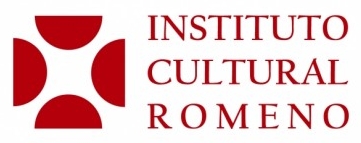Seminário
A Global 1989 and the End of the Cold War
Bogdan C. Iacob (New Europe College - Bucharest)
18 de setembro de 2014, 17h00
Sala 1, CES-Coimbra
Comentadora: Iolanda Vasile (CES)
Resumo
The global nature of the revolutions of 1989 consists in their quality of world historical event and is sustained through long lasting consequences during the past quarter of a century. Nevertheless, their salience for our times should not be taken for granted. However, the celebrations of two decades since the annus mirabilis strikingly revealed their increasingly regional, Europe-bounded presence. Some authors went as far as to argue that the specifics of the anniversary revealed Europe’s own difficulty to stay in history. What is obvious is that 1989 cannot function anymore as synecdoche for a putatively irrepressible advance of democracy, liberalism, and market society, as had often happened in the immediate aftermath of the end of the Cold War. The passing of time allows us to employ a broader, more sober interpretation of the revolutions of 1989 conditioned by the multiple developments that defined the past twenty-five years: the painful transitions in the former socialist bloc and Soviet space; EU integration; 9/11 and the war on terror; the economic crisis; the rise of BRICS; the difficulties of African development; the color revolutions; the Arab spring and the avatars of political Islam; and, last but not least, the recent crisis in Ukraine and the seemingly self-fulfilling prophecy of a new Cold War.
My paper will obviously not be able to touch upon all these issues or on their possible connections to 1989 and its legacies. Nevertheless, I will though attempt to discuss some of what I consider the central elements of 1989 as a global event. First, I am going to analyze some of the events that were taking place at the same time with the upheaval in Eastern Europe. For this I am employing a slightly less constricting chronology in that I will discuss democratic transformation and/or crisis between late 1980s and early 1990s in reference to South Africa and the Arab World. I plan to counterbalance it with a parallel analysis of authoritarian resilience, especially in places such as China (the Tiananmen moment), North Korea, or Cuba. I will bring together these threads in order to assess the nature of the post-Cold War world with a focus on the role of the human rights culture that has sprang in 1989’s aftermath.
Second, I will counterbalance comparisons between 1989 and the Arab Spring or the Euromaidan in Ukraine with analysis of democratic fatigue and ascendancy of (neo) authoritarian populism in the very cradle of the annus mirabilis. My goal is to ascertain the state of what was the central myth of 1989 – civil society – under present circumstances of corrosion of citizenship and representation in Europe. In other words, I intend to counterpoise the (more or less) hopeful visions of the post-Cold War world with contemporary assessments of chances missed and democratic deficits.
From a global vantage point, the legacy of 1989 remains ambiguous: democracy prevailed in many formerly authoritarian societies, but it was also significantly curtailed by unfettered capitalist globalization; the divisions of the bipolar world have disappeared, but new forms of neocolonialism took root; or, a international culture of human rights developed, while authoritarianism is on the offensive, as most blatantly shown by Putin’s actions in Ukraine. In the end, current appraisals of 1989 as global event still bear the marks of the considerable exhilaration that the events of that year generated. The illusions and expectations of those times continue to haunt imageries and representations of present days.
Nota biográfica
Bogdan C. Iacob holds a Ph.D. in history from Central European University with a dissertation entitled Stalinism, Historians, and the Nation. History-Production in Communism Romania 1955-1966. He was research fellow at several academic institutions, most recently Imre Kertész Kolleg (Jena) and the Center of Advanced Studies (Sofia). From October 2014, he will be research fellow at New Europe College (Bucharest). He published numerous articles on the political and cultural history of the state socialism, history-writing in Eastern Europe, and on dealing with the communist past. Among these are: “Revisiting Romanian History Through Concepts," Contributions to the History of Concepts, vol. 9, no. 2, 2014; “The Communist Regime in Romania. Interpretation or Condemnation?,” Südosteuropa-Mitteilungen, vol. 54, no. 2, 2014; “Is It Transnational? A New Perspective in the Study of Communism”, East Central Europe, vol. 40, no.1 (2013). He is co-editor with Vladimir Tismaneanu of The End and the Beginning. The Revolutions of 1989 and the Resurgence of History (CEU Press, 2012) and Remembrance, History, and Justice. Dealing With the Past in Democratic Societies (CEU Press, 2014).
Organização: Iolanda Vasile e Maria Paula Meneses.
Atividade no âmbito do Núcleo de Estudos sobre Democracia, Cidadania e Direito (DECIDe), do projeto ALCORA - Novas perspectivas da Guerra Colonial: Alianças secretas e mapas imaginados, organizada com o apoio do Instituto Cultural Romeno em Lisboa (ICRL).


